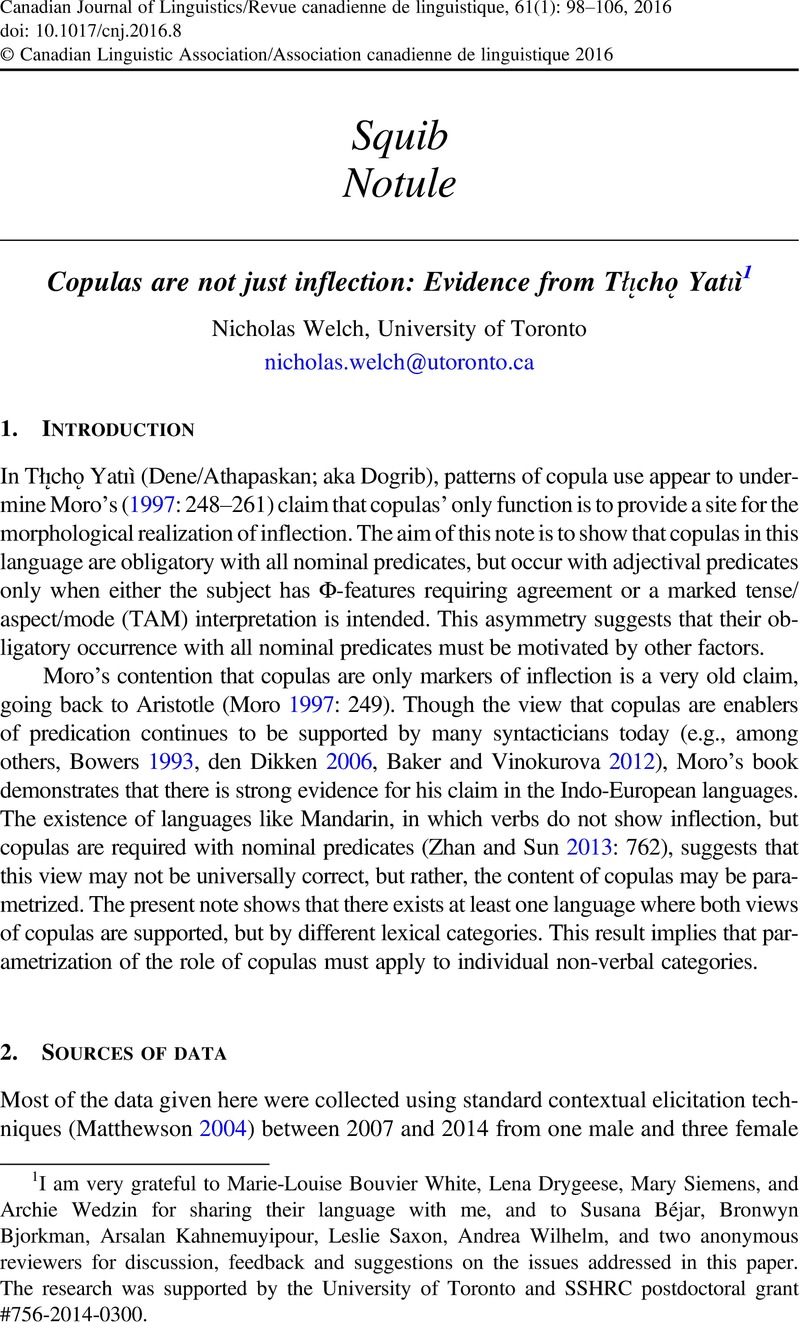No CrossRef data available.
Published online by Cambridge University Press: 29 March 2016

I am very grateful to Marie-Louise Bouvier White, Lena Drygeese, Mary Siemens, and Archie Wedzin for sharing their language with me, and to Susana Béjar, Bronwyn Bjorkman, Arsalan Kahnemuyipour, Leslie Saxon, Andrea Wilhelm, and two anonymous reviewers for discussion, feedback and suggestions on the issues addressed in this paper. The research was supported by the University of Toronto and SSHRC postdoctoral grant #756-2014-0300.